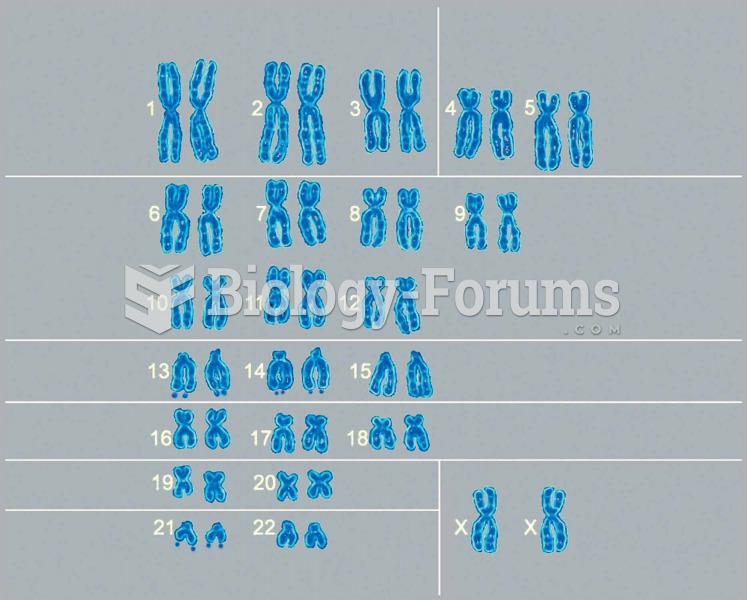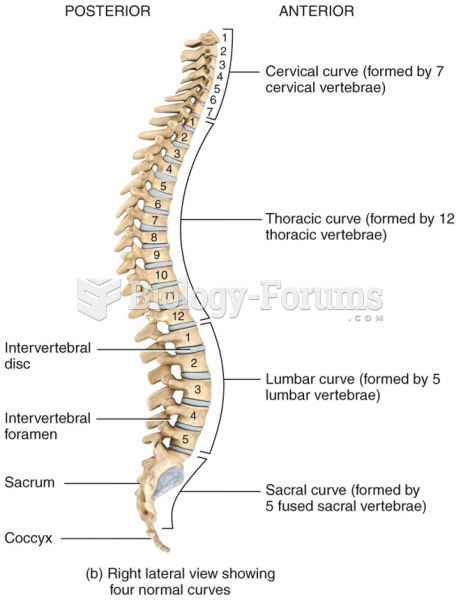|
|
|
Adult head lice are gray, about ? inch long, and often have a tiny dot on their backs. A female can lay between 50 and 150 eggs within the several weeks that she is alive. They feed on human blood.
The average adult has about 21 square feet of skin.
Egg cells are about the size of a grain of sand. They are formed inside of a female's ovaries before she is even born.
Bacteria have flourished on the earth for over three billion years. They were the first life forms on the planet.
Bisphosphonates were first developed in the nineteenth century. They were first investigated for use in disorders of bone metabolism in the 1960s. They are now used clinically for the treatment of osteoporosis, Paget's disease, bone metastasis, multiple myeloma, and other conditions that feature bone fragility.







